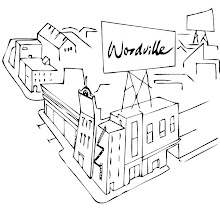Recent research from the US has shown that being happy can
be harmful. Something you can probably relate to if you’re tucking into a big piece
of chocolate cake. Right now.
But apparently watching a video of a cute cat can also have
the same outcome.
Researchers at the University of North Carolina and UCLA,
asked 80 test subjects questions about pleasure (hedonic well-being) and
purpose (eudaimonic well-being). Results showed that those who were happy, but
had little meaning in their lives showed genetic patterns associated with
chronic stress; whereas those who spoke of having meaning in their lives had a
less stressful genetic profile.
So this means the happiness you feel when your football team
wins the cup, or you find a bargain on ASOS, isn’t good for you in the long
run.
As a nation, 81% of us gave ourselves a seven or more out of
ten when asked if we felt the things in our lives were worthwhile. But who and what
can determine whether a life is worthwhile? Is it a successful career? Growing
a family? Or pursuing your passion you always put off for the daily grind?
Albert Einstein once said: “Only a life lived for others is
a life worthwhile”.
We live in a world that seems to be obsessed with material
things, social networks and celebrities and yet many of us are hungry for
happiness. Whilst, as stated earlier, these material things can make you
instantly happy – it’s not permanent. Giving something back – whether it’s quality
time with loved ones or travelling half way round the world to volunteer in a
local community – provides a purpose.
Several brands have picked up on our fascination with
happiness and used it to help build stronger connections with consumers. One Chicago-based
company, Dream Champs, launched in 2011 with the tagline “Because Life is Too
Short to do Work You Hate”. The company helps users identify their values and
connect them with like-minded companies through a website and seminar series.
Consumer brands also play a role in creating meaningful
experiences through their products and services. Burt’s Bees, the maker of
eco-friendly bath and beauty products, is a great example of this. Employees at
the company spend up to 30 business hours a year to ‘do good’. Last year, the
company closed its North Carolina HQ office so workers could join volunteers to
build an eco-friendly playground. And this year, Burt’s Bees donated 400 pairs
of jeans to charity Habitat for Humanity, which repurposed them to insulate new
homes.
TOMS is also another inspiring example of philanthropy. For
every pair of shoes you buy, the company donates a pair of new shoes to a
deserving child. They find communities that will benefit most from receiving
the shoes and where local businesses won’t be negatively affected. It’s the
small things like these that have the biggest impact.
So the next time you want that chocolate cake, maybe offer
it to someone else...
By Stephanie Rock


No comments:
Post a Comment